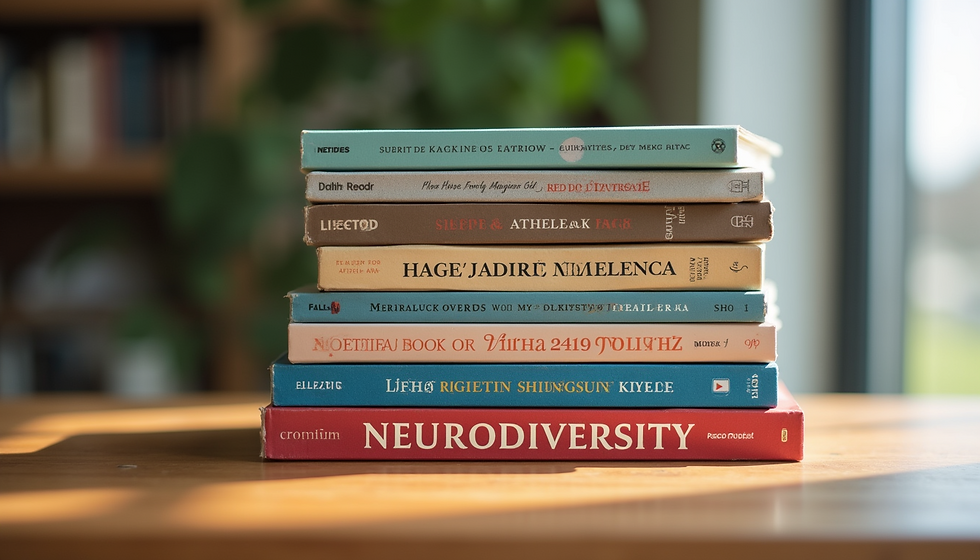The Catch-22 of Publishing as an Autistic Author
- Alan Freedman
- Sep 26, 2025
- 3 min read
Updated: 1 day ago

Becoming a published author is hard enough. Doing it as an autistic author is like being told to run a maze blindfolded, while someone keeps shouting, “Make eye contact!”
Publishing claims to love “diverse perspectives,” which sounded great until I realized that they also want them written in the exact same cheerful tone as everybody else. That’s the Catch-22: I'm the expert at my own life, but the industry is more comfortable with a familiar script.
To be fair, publishers and agents know what it takes for a book to sell, and they want me to succeed. And these poor souls have to dig through enough overwrought prose to qualify for hazardous duty pay. Sometimes I reread my own early drafts and feel morally obligated to apologize to the English language. Honestly, if I had to read 500 submissions a week, I’d start rejecting people for using colons.
The Query Letter Dilemma
A query letter is the written audition every aspiring author has to send to an agent or publisher. In theory, it’s simple: introduce myself, describe my book, and explain why I'm the perfect person to write it. In practice, it’s like trying to squeeze my entire personality, résumé, and life’s work into a single Tinder profile where the other person only swipes right if you sound witty, confident, and marketable.
For me, this is where the fun really starts. A query letter demands a “hook,” a synopsis, and a professional-yet-personable bio—all delivered in a very specific, very neurotypical tone. Which means the entire exercise feels less like introducing my book and more like role-playing “bankable extrovert” for an audience of gatekeepers.
So do I write it in the glitzy publishing tone the industry expects and risk sounding like ChatGPT’s favorite nephew? Or do I let my authentic voice shine and risk sounding like, well…me? It’s a lose-lose—unless, of course, I learn how to smuggle my real personality past the velvet ropes.
Marketing: The Joyless Paradox
Even if I land an agent, I'll then have to market myself. Online. In public. With hashtags. This is roughly as appealing as getting a root canal on live TV.
The expectation is constant “engagement,” which sounded taxing even before I realized it meant posting selfies with captions like, “Happy Friday, book fam! Here’s a photo of my writing nook!”
Meanwhile, all I want to post is, “I landed an agent and a publisher without setting myself on fire during the Zoom pitch. Where’s my medal?”
It’s a paradox: the more I market, the less energy I have for writing. The less I market, the less the industry can risk autistic and neurodiverse authors.
Authenticity: The Only Weapon That Works
Here’s the upside: readers want authentic voices. They don’t want me to pretend I’m the literary equivalent of a motivational TikTok coach. They want the real stories: the sensory overload, the awkward silences, the accidental truths that make people both laugh and wince.
That’s where autistic authors shine. I notice the oddities that everyone else skips. I make the invisible visible. And I usually do it with gallows humor, because if I can’t laugh at the absurdity, I’ll just end up throwing staplers.
Surviving the System (Somewhat)
So what do I do?
Find allies — writing groups, autistic author forums, or even that one sympathetic friend who reads my draft and says, “Yeah, you sound insane, but in a good way.”
Practice query letters — until I can write one without Googling, “How to not sound like I'm defending my thesis on medieval punctuation marks.”
Set boundaries — X and Facebook may eat my soul, but I don’t have to feed them three times a day.
Celebrate small wins — like writing two sentences without deleting them. Or surviving a bookstore event without pretending to be the cashier.
Final Thoughts
Publishing wants quirky voices, but only if those quirky voices can also act like extroverted salespeople. That’s the paradox. But we don’t need to become neurotypical to succeed. We just need to keep showing up, telling the truth, and occasionally slipping past the gatekeepers.
Because here’s the thing: our stories matter. And if we’re stubborn enough, and sufficiently caffeinated, we’ll get them out there.




Alan, I'm thrilled for you, and I am looking forward to reading your book. XO